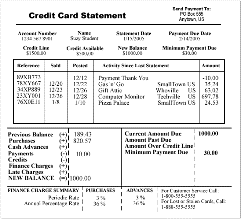Pay credit card before statement date to improve your chances of approval and get better terms
 When you pay credit card before statement is issued, you force the credit card companies to report a low balance to the credit bureaus. This lowers your credit utilization which in turn boosts your credit score. It also lowers you debt-to-income ratio, which is a crucial component lenders use to make lending decisions and setting terms.
When you pay credit card before statement is issued, you force the credit card companies to report a low balance to the credit bureaus. This lowers your credit utilization which in turn boosts your credit score. It also lowers you debt-to-income ratio, which is a crucial component lenders use to make lending decisions and setting terms.
Pay credit card before statement date!
In order to understand how this tactic can help you, you need to first understand how the credit card companies update the credit bureaus, and how lenders make their lending decisions.
Most credit card issuers send updates to the credit bureaus every month that includes details about your payment status, credit limits, balances and more. In most cases, the balance reported is going to be the amount that was on the last billing statement.
This reported balance is used twice:
- By the credit bureaus – to calculate your Revolving Credit Utilization (debt-to-credit-limit ratio).
- By potential lenders – to calculate your Debt-to-Income ratio (a major factor in any creditor’s lending decision).
Revolving credit utilization accounts for 30% of your FICO score. Credit utilization above 35% will lower your credit score, while credit utilization of 80% or more will impact it significantly.
The FICO score formula doesn’t care when or how many times a month you pay the credit card company. It ONLY cares about the reported balance on each card, as these balances figure into your utilization.
As a result, even if you pay your statements in full every month, your credit report may show high utilization, and you will get lesser terms!
Example:
Say that you have three credit cards, each with a limit of $ 3,000. Let’s also assume that you regularly charge them $5k – $7K per month in total (many people charge their entire monthly expenses for reward points).
Even if you pay your statements in full every month, your revolving credit utilization will be 60% – 80%, and your credit score will be severely affected. That alone will get you lesser terms and interest rates!
Now let’s assume that you apply for a mortgage or a car loan. The lender uses that same reported balance to calculate your debt-to-income ratio – a crucial factor in any lending decision. If your debt-to-income ratio is beyond the lender’s standards means your application is rejected.
How to force the credit card companies to report a low balance?
Most credit card issuers report the amount that was on the last billing statement as the account’s balance. This means that if you pay off all or some of what you’ve charged on your credit cards before the closeting date – the reported balance will be significantly small or zero.
All you need to do is to keep track of what you’ve charged on each card, and learn each card’s closing date. A few days before the closing date make a payment for all or some of what you’ve charge, and you’re done.
Does this tactic have any draw backs?
Only if you use it for a long period of time, and only if the reported balance is $0. While zero balance in itself is not bad, it doesn’t build credit as well.
Statements with zero balance have the same effect as not using your cards. If you want to improve your credit scores you need to show consistent timely payments every month with a balance greater than $0.
Bottom line
Use this tactic two or three months prior to applying for credit, certainly before applying for a mortgage of a car loan.
One important rule to remember
If you get a bill, you must pay at least the minimum regardless of whether you reduced the balance earlier in the billing cycle.
Return from Pay credit card before statement to Obtaining Credit Page
Return from Pay credit card before statement to Credit Report 101 Home Page
